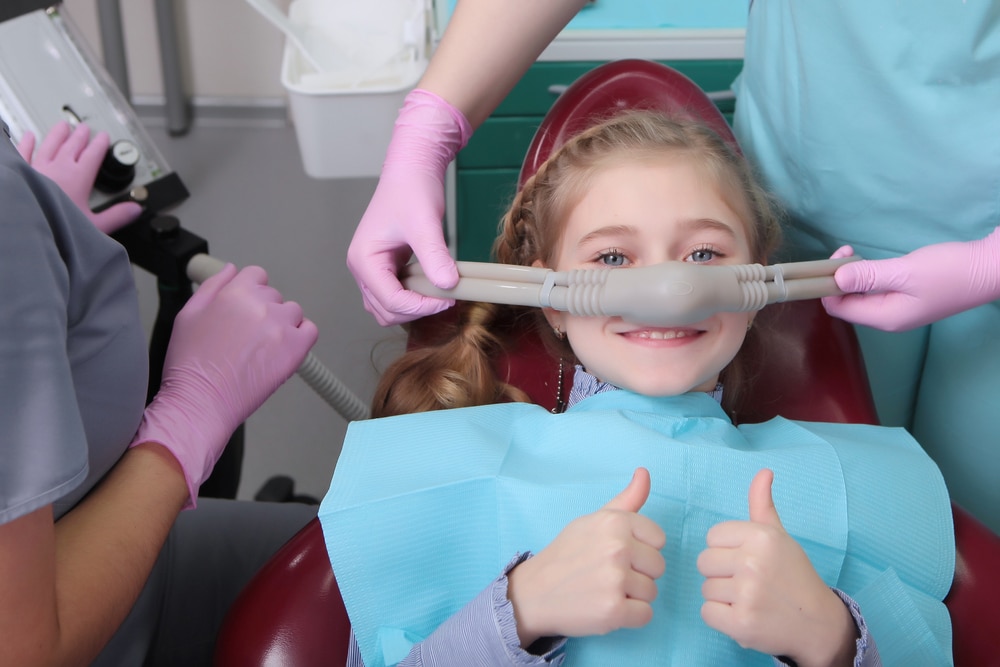
Dental sedation limits or removes the ability to feel pain during a dental procedure. Some types just remove the sensation of pain, while others render the patient unconscious so they are not awake during the procedure.
There are a few different types of dental sedation available to patients. Each type of sedation is different, offering a varying degree of sedation. That is, some levels of sedation provide for some level of consciousness, and others do not.
There are different methods of delivery of the sedative agent as well. There are benefits and considerations for each.
Types of Dental Sedation
- Nitrous oxide: Also called laughing gas, nitrous oxide is usually administered via a mask that goes over the patient’s nose and mouth, so they get concentrated amounts of the gas that will allow them to avoid the experience of pain and provide a slight sense of euphoria, easing anxiety. This method uses a combination of nitrogen and oxygen. It is a safe method, but some patients find it makes them nauseous.
- Oral sedation: This type of sedation uses pills to calm patients for the dental procedure. The dose will impact the effect of the medication. Higher doses may mean that the patient is not very responsive, whereas lower doses may allow the patient to communicate freely.
- IV sedation: This is similar to oral sedation but the sedative is administered via IV rather than a pill. This usually takes less time to take effect, and it is easier to control the levels of the drug throughout the procedure.
- General anesthesia: This is the application of anesthesia such that the patient is no longer conscious. This is a great fix for those who struggle with significant anxiety and special needs patients who may not otherwise tolerate dental care.
Do You Need Dental Sedation?
If you are seeking sedation for dental care or a specific procedure, contact us at Dison Family Dentistry to learn more about your options.
